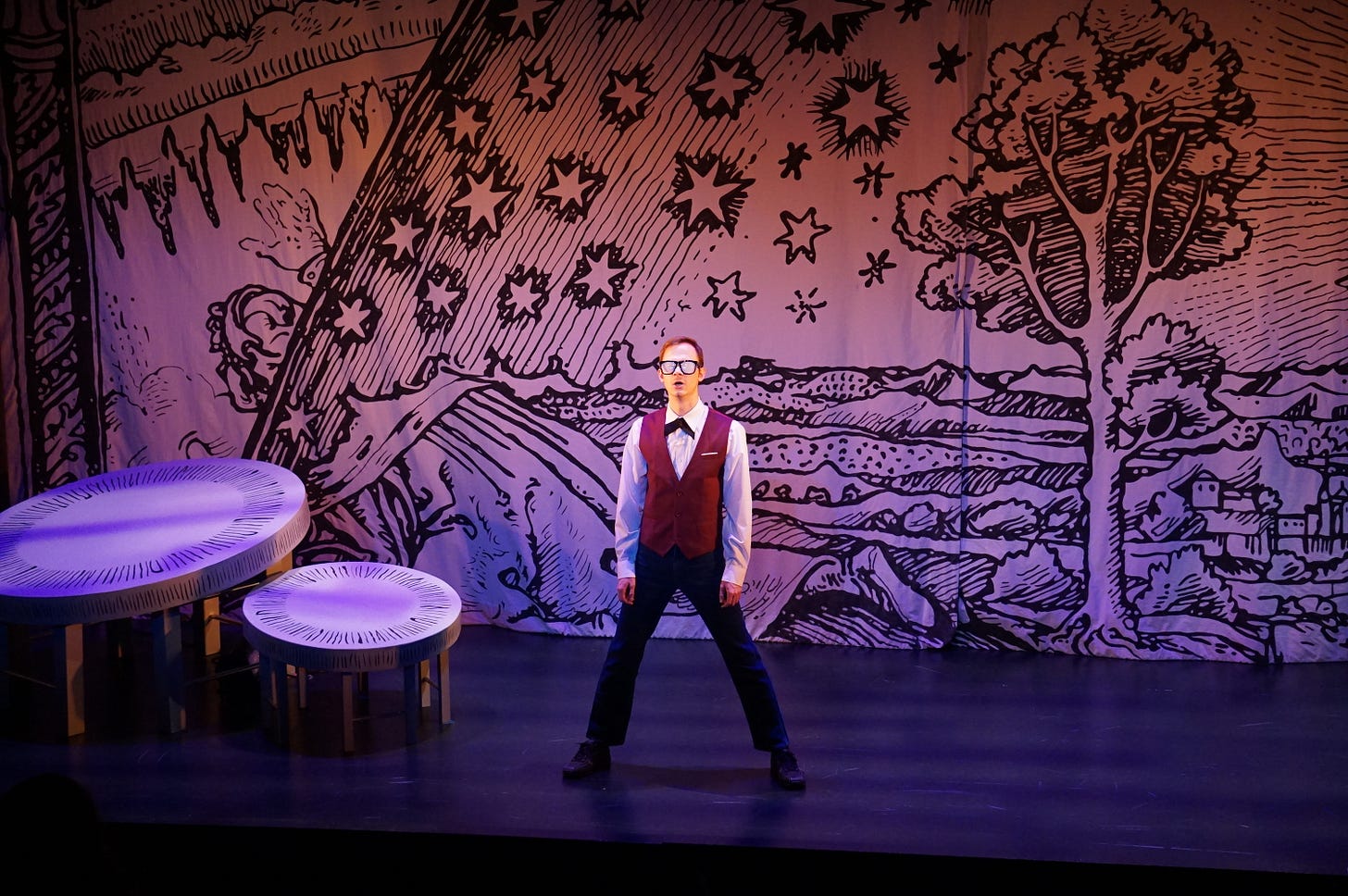What should I know about auditions for BU Players productions?
An overview of the audition process with the BU Players by Prof. David A. Miller
What are auditions?
During auditions, actors share who they are with the director and other production team members such as the assistant director, designers, dramaturg, etc. It is the first chance for the actor and the director to collaborate in the rehearsal room. The director is looking for the skill level of the actors, their collaborative spirit, and how they might fit into the world of the specific play they are auditioning.
What is the difference between a general audition and a callback?
In the general audition, an actor will generally select and prepare a monologue to perform. During a callback audition, the actors invited to callbacks will play assigned scenes from the play with one another.
How do I choose a monologue for a general audition?
Unless otherwise specified, a monologue should be of the same time frame and style as the play the actor is auditioning for. For example, Anti-Hero: Revenge of the Sw*fties is a contemporary play with a blend of edgy humor and seriousness. An actor might find a play written in the past 20 years or so with one or both of these elements. The monologue should be around 60 to 90 seconds in length. It should be from a play, not from a movie or a musical.
Where do I find good audition monologues?
Finding great monologues in plays is ideal, but if you don’t know a lot of plays at this point, there are great monologue books out there, including In Performance: Contemporary Monologues for Men and Women. This book and other monologue books are available in the Andruss Library. These curated collections of monologues are stronger than those you can easily find in a Google search.
Are there monologues I should avoid?
If a monologue was written as a monologue and is not from a play, it won’t be as strong as a monologue from a full-length play in that you won’t be able to read the whole play and learn about the character. If you are concerned about doing the same monologue as other actors, you might avoid monologues by playwrights Emily Powell or Gabriel Davis. (It’s no coincidence that these monologues are also the ones most easily found in a Google search, so it may suggest to the director that the actor did not do much research when selecting a monologue.)
How do I prepare a monologue for a general audition?
Once you have found a monologue you feel is right for you, read the play. Take notes on the given circumstances: Who is the character? What are their relationships? Where are they? When does this take place? And what happens before the monologue that spurs them on? Then, read the play again. Take specific notes about the monologue:
Conflict: What are you fighting for? What do you want to do to or to get from the other character(s) you are talking to?
Relationship: Who are you talking to? What is your relationship, specifically?
Moment Before: What happens before this monologue that fuels your want?
Then rehearse the monologue aloud, imagining the other person you are talking to.
What are the steps of the general audition, or what happens during a general audition?
The steps of the general audition are:
Enter the room when called, greet the director and others as you come in, and find your place a comfortable distance from the director—not too far and not too close.
Introduce yourself. Share your name, the name of the play, the name of the playwright, and the character you will be playing.
Transition into the monologue, finding a focal point above and slightly to the side of the director so that you are talking to the imagined other character and not to the director.
Perform the monologue.
Transition out of the monologue.
Add a ”Thank you.” to signal that you are finished.
The director may have questions for you or not, then will thank you for your audition and you are free to exit the room.
How do I prepare for a callback audition?
Once the general audition is through a “callback list” will be posted listin gthe actors invited to the callback auditions which are a sort of “second round” of auditions. The callback scenes for actors will be distributed when the callback list is posted, if not before. Actors should prepare those scenes how they might prepare for a rehearsal. For each scene, you should know who the characters are, what their relationships are, what you are doing in the scene, and what you want to get from or do to the other characters. Then get to know the dialogue, rehearsing the scene out loud. When you join the other actors for the scene, your goal is to interact with them during the scene, “lifting the words off the page” so that you can listen and respond to the other actors.
What happens after the auditions are over?
A cast list will be posted on the callboard outside the Theatre Lab at the time shared during callbacks. (If you didn’t hear the time announced, ask a stage manager.) At CU-Bloomsburg, we encourage you to contact the director for feedback about your audition. During that conversation you may be asked about what you did that felt successful and the ways in which you’d like to improve the next time.
What can I do if I have more questions?
Contact Prof. David A. Miller (dmiller@commonwealthu.edu) with any questions or concerns about the audition process. And be sure to attend the Audition Workshop on Wednesday, September 4 from 6:30 pm to 8:30 pm with this season’s Mainstage show directors, Prof. David A. Miller and Dr. Carrie Winship, for many insights about the audition process.


